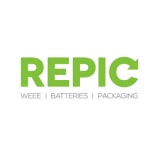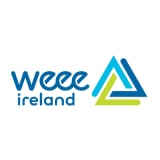Modern Slavery Act –
Anti Slavery and Human Trafficking Statement for LG Electronics
Pursuant to the United Kingdom (UK) Modern Slavery Act 2015, Chapter 30, Part 6, Section 54, we, LG Electronics confirm we have taken steps during the 2023 financial year (running from 1 January – 31 December) to identify the risks of slavery and human trafficking taking place in our supply chains and business. This will be our fifth Modern Slavery Act statement.
About our business
LG Electronics Inc is the holding company for:
- · LG Electronics European Holding B.V.
- · LG Electronics U.K. Ltd
LG Electronics is a global innovator in technology and consumer electronics with a presence in almost every country and an international workforce of more than 75,652. LG is a leading manufacturer of consumer and commercial products ranging from TVs, home appliances, air solutions, monitors, service robots, automotive components and its premium LG SIGNATURE and intelligent LG ThinQ brands are familiar names world over. Visit www.LGnewsroom.com for the latest news
LG Electronics manufacture and sell electronic and telecommunications goods under the following four business units:
- · Home Entertainment
- · Home Appliance and Air Solution
- · Vehicle Component Solutions
- · Business Solutions
Any reference to LG Electronics in this statement refers to LG Electronics European Holding B.V. and LG Electronics U.K. Ltd.
Anti – Slavery and Human Trafficking measures
We consider the issues of slavery and human trafficking very seriously and have taken measures (especially at our HQ level) to identify and reduce this risk across all our supply chains.
As a member of the Responsible Business Alliance (RBA, formerly the EICC)) - a nonprofit coalition of electronics companies committed to supporting the rights and well-being of workers and communities engaged in the global electronics supply chain, we demonstrate our commitment to environmental and social responsibility. RBA members commit publicly to the RBA Code of Conduct (Code) and are expected to actively pursue conformance to the Code and its standards as a total supply chain initiative. We also publish our own Supplier Code of Conduct based on the RBA Code of Conduct on our corporate website and incorporate its provisions into our standard contracts with suppliers.
https://www.lg.com/uk
We are proud of the measures we undertake and the below links give further details on our corporate social responsibility in supply chain management and on our policies on conflict minerals.
https://www.lg.com/global/csr-in-supply-chain-business-partner
https://www.lg.com/global/conflict-minerals-business-partner
Our efforts to eradicate slavery and human trafficking in our supply chain and own business include the following:
-
1. Verification and Risk Assessment: We evaluate and address risks of human trafficking and slavery through conformance to the Code, Section A.1, which states, among other standards, that: forced, bonded (including debt bondage) or indentured labour, involuntary prison labour, slavery or trafficking of persons shall not be done.
Annually, we are trying to reduce any risks within our supply chain and our 2023 Self- Assessment results show that business sites in 30 locations and 1266 suppliers (these include those in Europe, China, Korea, Asia, the Middle East and Africa and the Americas) were assessed and we continuously look to address any issues that are flagged. Key results from SAQ for own manufacturing sites and suppliers are shown as below. Further details on our supply chain management are available through our Corporate Social Responsibility in Supply Chains link.[SEL1]
We pursue conformance by using the Supplier Self-Assessment Questionnaire (SAQ), and the Validated Audit Process (VAP).
- a. The SAQ is a self-evaluation tool that enquires about demographics and existing policies at the facility level against all sections of the Code.
- b. The VAP audits carried out on RBA member facilities and their suppliers' facilities are completed by independent, third-party auditors specially trained in social and environmental auditing and the VAP audit protocol. This helps to set consistent, industry-wide expectations.
We conduct these activities regularly and extensively on the following:
- · All LG Electronics’ manufacturing facilities – once a year
- · First tier suppliers (of our direct suppliers) – once a year
The RBA also convenes regular teleconferences, webinars and other meetings that make us better able to understand and monitor risks associated with labour recruitment practices.
- 2. Supplier Audits: We conduct VAP audits on our suppliers or obtain audit reports through RBA’s audit sharing system for major suppliers, these audit reports are considered valid for no more than two years. We also conduct internal on-site audits every year for high risk suppliers identified by an annual SAQ. The tools referenced above help us decide which suppliers to audit after identifying the risk levels for the slave labour or human trafficking practices.
Both the VAP and internal on-site audits assess suppliers against the entire RBA Code, including: Labour, Health & Safety, Environment, Ethics, and Management Systems. It includes many different components, such as On-Site Inspections, Document Reviews, and Worker and Management Interviews.
In 2023, we undertook 33 external audits including 10 VAP audits for 8 manufacturing sites and found the majority of findings were ‘working hour', 'occupational safety', and 'emergency preparedness’. For suppliers, 50 internal audits for high risk suppliers were conducted by procurement managers. No human trafficking cases were found from both external and internal audits.
- 3. Certification: Section E of the RBA Code includes a clause stating that companies should have a management system that contains “a process to communicate the Code requirements and to monitor supplier compliance to the Code.” This does not mean that suppliers submit certifications. However, we pursue full compliance to the Code, Section A.1 for all major suppliers and expect them to monitor their suppliers.
- 4. Internal Accountability: Non-compliance with the RBA Code on slavery and human trafficking is taken very seriously. It is considered one of the most severe types of non-conformance and corrective action plans to remedy any identified instances of non-conformance are expected to be implemented in the shortest possible timeframe. Furthermore, for our own employees who fail to meet our code on slavery and trafficking, disciplinary action including dismissal will be executed by the disciplinary committee’s decision. For suppliers who refuse to conduct our requested corrective actions, we may terminate business relationships, as specified in the contract.
- Case Study: We found that wage deduction from trainees' salary occurred at a subsidiary in Asia. This deduction was conducted at the time of hiring by a training institution who manage trainees and four US dollars were deducted as a uniform fee for 182 trainees each. Corrective action on this non-compliance was made including reimbursement of deducted uniform fee to all 182 trainees.
- 5. Capacity-Building/Training: RBA’s Learning Academy contains online learning modules that cover the RBA Code of Conduct. In addition, there are modules on hiring and related topics that are particularly relevant to these issues. Modules can be assigned to both internal staff and suppliers and learning can be tracked. Members can also upload their own resources to the Learning Academy for their teams. The RBA encourages members to share any resources they may have on these topics with the RBA for sharing in the Learning Academy. The RBA also offers in-person training sessions on a variety of topics. In 2019, we developed a training module on forced labour within our regular Code of Conduct training for employees which was undertaken during 2020. We are committed to good practice, high standards and to being supportive to staff who raise genuine concerns, this is captured under the LGEUK Whistleblowing Policy which encourages employees to raise concerns about any issues, including slavery, human trafficking, threats to customers, third parties or the public generally. This policy applies to all our employees, officers and consultants.
This disclosure confirms our efforts to eradicate slavery and human trafficking practices within our supply chain and it shall be reviewed annually and updated accordingly. This current statement was approved by the board on 18 December 2024 and was subsequently signed and uploaded.








